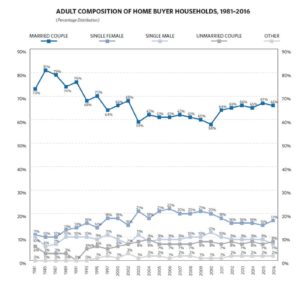
by LLT | Feb 7, 2017 | LLT, News
 The foreclosure picture continues to improve in the U.S., according to the recently released Black Knight Financial Services Mortgage Monitor.
The foreclosure picture continues to improve in the U.S., according to the recently released Black Knight Financial Services Mortgage Monitor.
An increase in cure activity, defined as a borrower paying their mortgage current from some stage of delinquency or foreclosure, helped in part to improve delinquencies in December 2016 according to the report. It also said more than 450,000 borrowers paid themselves current on their mortgages, representing a 17 percent monthly rise.
The inventory of loans in foreclosure declined by more than 30 percent year-over-year, edging out 2013 for the highest rate of decline on record. Severely delinquent foreclosures, defined as those that haven’t made a payment in over two years, dropped by 38 percent from 2015. Less delinquent foreclosure inventory dropped by 21 percent.
December also saw only 59,700 foreclosure starts, a 24 percent decline from the same time one year ago.
Continue reading.

by LLT | Feb 6, 2017 | LLT, News

Gary Gohn, director of the National Economic Council
The Trump administration was set to release an executive order Friday calling for a review of the Dodd-Frank Act, the clearest sign yet of the White House’s intent to roll back the onslaught of regulations since the 2010 law was passed.
But the immediate questions about the order focused on what authority the White House has to enact real change, since congressional Democrats are resistant to rolling back the law and those running the regulatory agencies are still Obama administration appointees.
News of the order, which appeared to be timed with President Trump’s scheduled meeting with business leaders, first came out in a media interview with National Economic Council Director Gary Cohn. He spoke of possible reforms including changes to the Financial Stability Oversight Council, the “living wills” process, a facility for resolving failed companies and even reforms for the housing finance system.
Continue reading.

by LLT | Feb 3, 2017 | LLT, News
 Mortgage rates held steady this week, pausing ahead of the Federal Reserve meeting and Friday’s employment report.
Mortgage rates held steady this week, pausing ahead of the Federal Reserve meeting and Friday’s employment report.
As expected, the central bank did not raise its benchmark rate when it met earlier this week. The news, however, came too late to influence Freddie Mac’s survey. The government-backed mortgage-backer aggregates current rates weekly from 125 lenders from across the country to come up with a national average mortgage rate.
According to the latest data released Thursday by Freddie Mac, the 30-year fixed-rate average was unchanged this week at 4.19 percent with an average 0.5 point. (Points are fees paid to a lender equal to 1 percent of the loan amount.) It was 3.72 percent a year ago.
The 15-year fixed-rate average inched up to 3.41 percent with an average 0.5 point. It was 3.4 percent a week ago and 3.01 percent a year ago. The five-year adjustable rate average ticked up slightly to 3.23 percent with an average 0.4 point. It was 3.2 percent a week ago and 2.85 percent a year ago.
Continue reading.

by LLT | Feb 2, 2017 | LLT, News
 The news and research about women and money can be dreary. Women earn less than their male counterparts, pay harsher workplace penalties for pursuing parenthood, struggle more with debt, and save less for retirement.
The news and research about women and money can be dreary. Women earn less than their male counterparts, pay harsher workplace penalties for pursuing parenthood, struggle more with debt, and save less for retirement.
But there’s one area of personal finance where single women are outpacing men in the U.S., and it’s a significant one: home ownership.
Nearly a century since the publication of A Room of One’s Own—Virginia Woolf’s essay on women’s urgent need for a private physical space in which to flourish—and a legacy of laws that restricted women in owning property or considered them to be property, single women account for 17 percent of homebuyers in the U.S., compared with 7 percent of single men. The data, from last year, are from the National Association of Realtors.
Continue reading.

by LLT | Feb 1, 2017 | LLT, News
 If a real estate buy is in your near future, rising interest rates are bad news. Or so you thought. Rising interest rates are not necessarily evil, however.
If a real estate buy is in your near future, rising interest rates are bad news. Or so you thought. Rising interest rates are not necessarily evil, however.
This post explains how an increase in rates won’t necessarily thwart your home-buying ambitions, and how it might even help.
1) Rising interest rates signal economic improvement
The Fed raises short-term interest rates when inflation is a concern. Inflation is not normally an issue when the economy is uncertain or in poor condition.
An improving economy means more consumer activity. In fact, two-thirds of the US economy is based on consumer spending. More spending equals more jobs, higher wages, and competition for employees.
2) Investments pay off
Right now, stock market investors are earning excellent returns. The Dow Jones Industrial Average set records this week, topping 20,000 on January 25, 2017.
If your down payment funds are invested in stocks or mutual funds, you could hit your savings goal sooner.
You could also find yourself earning more as competition for employees heats up.
Reasons 3 – 5

 The foreclosure picture continues to improve in the U.S., according to the recently released Black Knight Financial Services Mortgage Monitor.
The foreclosure picture continues to improve in the U.S., according to the recently released Black Knight Financial Services Mortgage Monitor.







Recent Comments